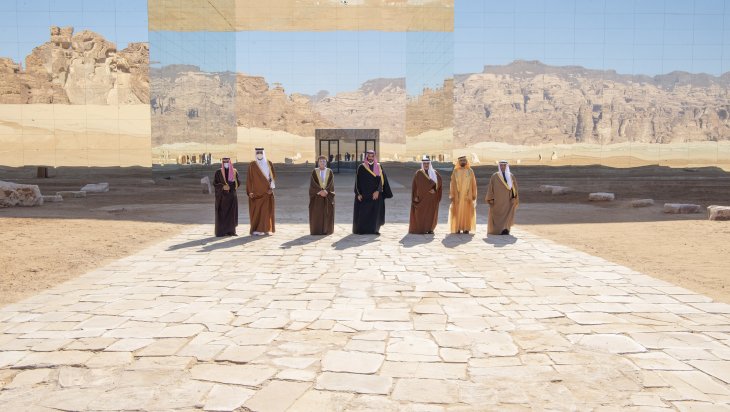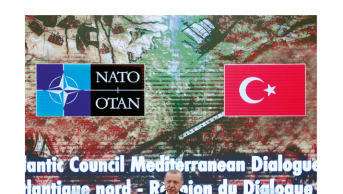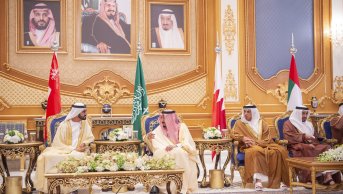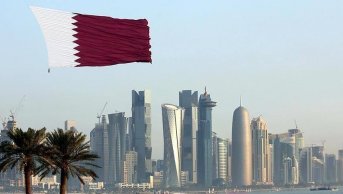Cold Peace between Qatar and the United Arab Emirates

Before 2011, Qatar and the United Arab Emirates (UAE) were small Gulf countries that positioned themselves under the security umbrella of the US. They followed soft power and state-branding strategies by focusing on niche diplomatic areas such as mediation and international aid, and that stood out with their economic resources and aggressive investments in the Western world. However, despite the political, social and economic similarities, Qatar and the UAE have become major political rivals after 2011 due to their diverging foreign policies that went well beyond their small-state molds. The Arab uprisings that started in 2011 were an important turning point for Qatar and the UAE in this regard. The two countries tried to shape the processes of change triggered by the Arab Spring in many countries such as Syria, Libya, Egypt, Tunisia and Yemen by pursuing an aggressive, interventionist and pro-active foreign policy beyond the limitations of their traditional 'small state' mold. With the process of Arab revolutions, Qatar and the UAE have entered the search and race to expand their regional influence through the implementation of interventionist policies in terms of economy, politics and military. On the other hand, the two rivals adopted revolutionary and counter-revolutionary stances as a result of their differing threat and opportunity perceptions, and followed conflicting policies in many countries.
The struggle for influence between the two Gulf countries, especially in North Africa and the Horn of Africa regions, has become a prominent element in the regional geopolitical equation. At this point, Qatar's increasing regional influence was severely securitized by Abu Dhabi in line with the UAE's threat perception toward the Muslim Brotherhood and Iran. In addition, Qatar's pursuit of change in the regional order following the Arab Spring conflicted with the UAE's attempts to re-establish the regional order around authoritarian and military regimes. For this reason, limiting and reversing Qatar's post-2011 regional activism has become one of the UAE's foreign policy priorities. At this point, the political struggle between the UAE and Qatar in countries that have undergone significant transformation such as Egypt, Libya and Tunisia comes to the fore. Accordingly, the portrayal of Qatar as a country that supports terrorism and the promotion of this perception, especially among the Western public opinion, was the focus of the UAE's anti-Qatar propaganda activities. The UAE provided large funds to lobbyists and think-tanks (especially those based in Washington DC) for such purposes.
The biggest crises caused by the struggle between the two countries were the Ambassadors Crisis in 2014 and the Gulf Crisis in 2017. A group of countries led by Saudi Arabia and the UAE first recalled their ambassadors from Qatar in 2014, and later cut off their diplomatic ties and imposed a blockade against Qatar in 2017 with the aim of punishing and isolating Qatar for its regional policies. These two crises can be considered as the two most significant manifestations of the geopolitical rivalry between Qatar and the UAE. In the process, it was mainly the UAE who made Qatar the target.
The al-Ula Agreement
As of 5 January 2021, the decade-old and tension-packed struggle between the UAE and Qatar has entered a new phase. With the Declaration on Solidarity and Stability signed on this date, it was declared that the Gulf crisis was ended and the blockade against Qatar was lifted. Especially with the election of Joe Biden as the US President, strong expectations emerged for the appeasement of the political climate that had been in favor of Saudi Arabia and the UAE during the Trump era. On the other hand, the resolution of the Gulf crisis under the leadership of Saudi Arabia was considered as a preliminary move in the transition process.
Although the UAE did not seem very willing, it bandwagoned with Saudi Arabia in the process. Because, apart from the changing geopolitical conditions, Qatar had no direct policy-change that would cause the UAE to change its stance toward Qatar. The lifting of the blockade was considered a political success for Qatar, while the UAE reluctantly accepted the defeat. In the following process it was seen that the resolution of the crisis was only on paper and was unable to re-establish trust between the parties in the short term. Although there was a gradual improvement in Qatar's relations with Saudi Arabia and Egypt after the agreement and the parties showed a willingness to take steps for diplomatic rapprochement, the steps taken by the UAE and Bahrain were very limited. Last week, Saudi Arabia and Egypt sent their ambassadors back to Qatar after an interruption of nearly 4 years, which was the latest and most concrete development in this regard. On the other hand, relations between Qatar and the UAE have neither remained as before the al-Ula nor showed a promising outlook for the future.
Cold Peace in the Gulf
It can be said that the crystal-clear competition and struggle between the UAE and Qatar have evolved into a cold peace at this point. While it is seen that the re-establishment of diplomatic relations and negotiations between the parties help de-escalate the tension at the level of statements, various measure of the UAE against Qatar at the level of action show that the divergences still continue. Delegations of the two countries came together to discuss the common mechanisms and processes for the implementation of the al-Ula agreement, which was one of the first positive steps taken in this direction. This process was followed by the exchange of positive messages. Finally, on the fourth anniversary of the crisis, Anwar Gargash, diplomatic advisor to the UAE President, said that the tension between Qatar and his country was left behind and that a new page had been opened. Similarly, Qatari Foreign Minister Sheikh Mohammed bin Thani made statements confirming that the two countries held positive talks in the past weeks for the re-establishment of relations.
However, behind this promising picture in diplomatic relations, particularly two steps taken by the UAE against Qatar showed that the tensions at the level of action still continue. The first is the UAE's attempts to encourage eight African journalists to produce opposing/manipulative content regarding the 2022 World Cup to be held in Qatar. According to the statement made by the Federation of African Journalists (FAJ), high-level Emirati officials asked African journalists to hold a press conference on Qatar's hosting of the World Cup and to call on African national teams to boycott the event over the issues of workers' rights in Qatar.
A similar attempt by the UAE to damage Qatar's international reputation was the portrayal of Qatar as a supporter and financier of terrorism in a UAE-funded movie. “The Misfits”, which was released in the United States on 11 June was financed by the UAE and was shot by a UAE-based movie production company in cooperation with the leading production companies in Hollywood. In the movie featuring prominent Hollywood figures, Qatar is called “Jazeeristan” and portrayed as the financier of terrorism. Also, the head of the International Union of Muslim Scholars, Yusuf al-Qaradawi, who is one of the leading figures of the Muslim Brotherhood movement living in Qatar, is depicted as a supporter of global terrorism. This made the UAE the target of many criticisms.
These two recent developments show that the UAE's attitude toward Qatar has not changed much despite its promising statements. This means that the decade-old rivalry between Qatar and the UAE continues in the background, although it has subsided to some extent in terms of visibility, and that the UAE continues to see Qatar as a dangerous other, especially due to Qatar's good relations with the Islamist actors in the region. In a period when there have been steps toward softening and normalization between the regional blocs that can be called revolutionary and counter-revolutionary especially after 2013, the UAE, albeit with certain concessions, seems to maintain its former aggressive regional position and unable to make compromises in its gains and influence obtained in this period. Although it has seemingly made policy revisions in line with the geopolitical change in the region, it can be stated that the UAE, which has positioned itself as a decisive regional power within the counter-revolutionary regional order, is likely to continue to implement more aggressive policies when its own interests are at stake. Consequently, the UAE's relations with Qatar, which it considers as the most similar and dangerous other, has important potential to give considerable clues for the future course of the UAE’s regional policy in the future.











